Glenn Beck In Harlem: “Time To Be Heard” Special Spotlights Black Conservatives
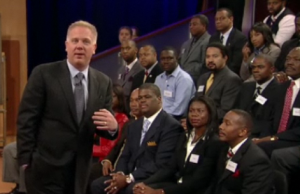 Last night, Glenn Beck hosted a special entitled “Time To Be Heard,” highlighting the struggles of black conservatives in America. Inspired by a former guest, Charles Payne, who grew up in the Harlem section of New York City, Beck’s five-part Friday show was devoted to detailing the political views of those not willing to give President Obama a “free pass” within the black community.
Last night, Glenn Beck hosted a special entitled “Time To Be Heard,” highlighting the struggles of black conservatives in America. Inspired by a former guest, Charles Payne, who grew up in the Harlem section of New York City, Beck’s five-part Friday show was devoted to detailing the political views of those not willing to give President Obama a “free pass” within the black community.
But, of course, Beck is speaking to a larger issue — one he puts on hold until after his pilgrimage, with Payne, to Harlem. In the first clip, Payne speaks about being beaten up for “talking white” and wanting a briefcase and calculator for Christmas, only to have his things destroyed. Rapping or being a professional athlete are not the only ways out of a struggling community for a black child, he stresses reasonably. It’s about education, he says.
“Did you vote for Obama?” Beck asks. “I did it mostly out of a sense of obligation,” he said, before noting his disappointment. “The president’s getting a free pass within the black community on so many things,” Payne says.
And just like that, a cut back to the studio reveals Beck and a room full of black conservatives, all clad in dress clothes, ready to make his larger point. This set-up is a particularly interesting development in light of Beck’s criticisms the previous night that the soldiers surround Obama during his speech were “props.” Is this any different?
Whatever the case, Beck continues: “I’m puzzled not just by your life experiences,” Beck tells Payne. “I think this is happening to all of America. We’re being told now you can’t make it and somebody’s got to be there to help equalizie everything. I think we’re headed toward really dangerous territory.”
From there, the conversation devolves into talk of socialism, naturally, cloaked in claims about fighting for “the right to carry a briefcase” and not be a rapper.
But the Obama conversation is the most compelling, and in some ways, twisted. In a deft rhetorical move, Beck concedes that should the roles have been reversed, and he were watching the first white presidential candidate, even if he disagreed politically, he would want him to win just to break that barrier. While ostensibly this sounds vaguely pro-Obama, he is also insinuating that many black votes for Obama were based only in race, against one’s own politics.
You have to hand it to Beck — he’s never shy when it comes to tackling thorny issues and this one’s chock full of them. Check out the clips below:
We’re still waiting on Fox to post the video for parts 4 and 5. This post will be updated as soon as they become available.
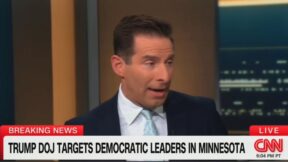
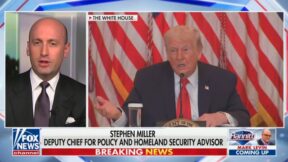

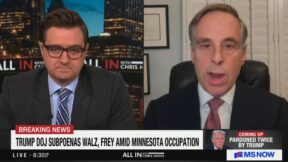
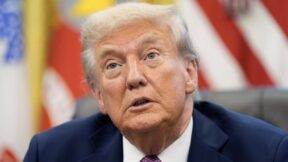
Comments
↓ Scroll down for comments ↓